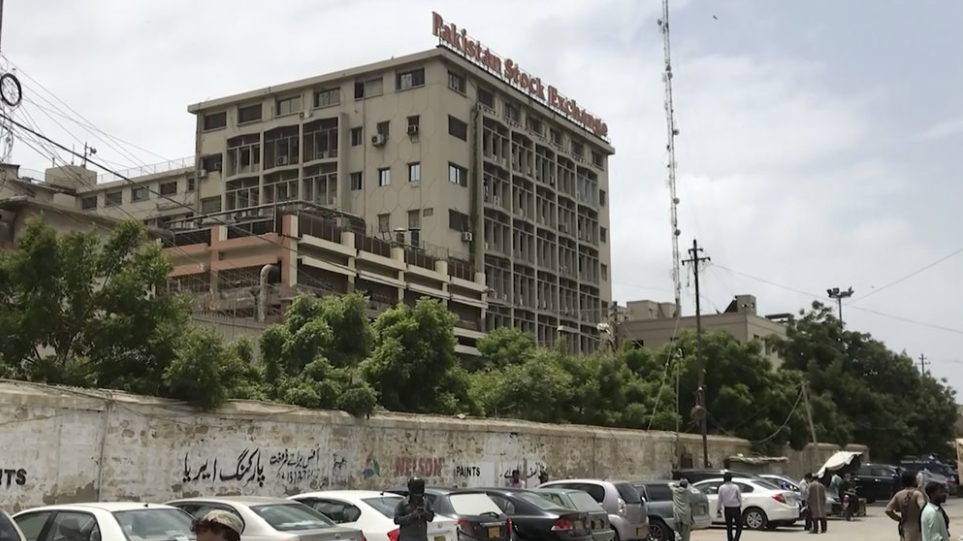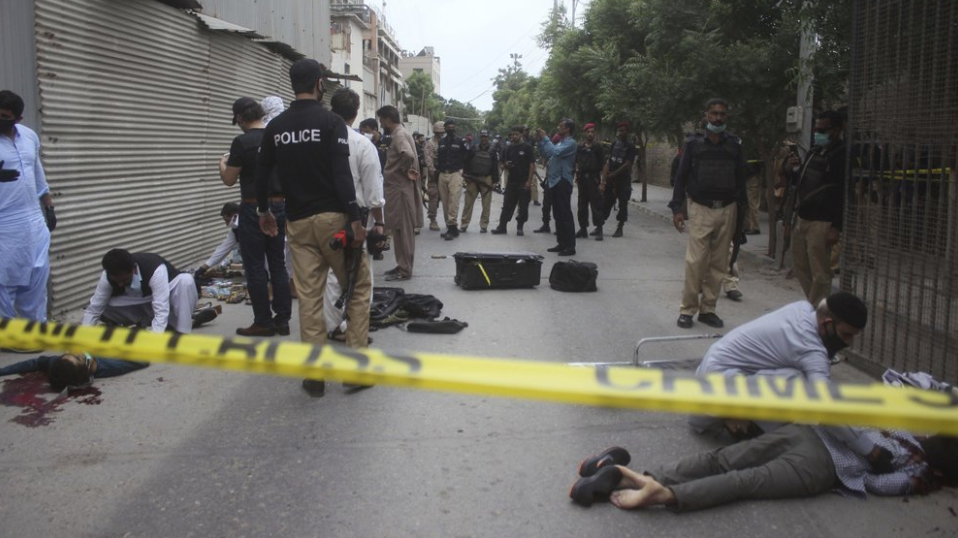
Militants attacked the stock exchange in the Pakistani city of Karachi, June 29, 2020. /AP
Militants attacked the stock exchange in the Pakistani city of Karachi, June 29, 2020. /AP
Militants attacked the stock exchange in the Pakistani city of Karachi on Monday, killing at least three people, according to police. All four gunmen were later killed by Special police forces who were deployed to the scene of the attack in a swift operation to secure the building.
Two guards and a policeman were killed and seven people were wounded, said police. A third security guard was reported to be in critical condition following the assault.
There were no reports of any wounded among the brokers and employees inside the exchange and police said separatist insurgents from the troubled southwestern province of Balochistan claimed responsibility.
The Baloch Liberation Army (BLA) had claimed responsibility in a post on Twitter but the authenticity of the account has not yet been verified.
The attackers were armed with grenades and automatic rifles, police said. They launched the attack by opening fire at the entrance gate of the Pakistan Stock Exchange in the southern port city, the country's financial center.
"They had come to carry out an attack inside the building and take hostages inside," the director-general of the Sindh Rangers, a paramilitary force, Omer Ahmed Bukhari, told media, adding all attackers had been killed within eight minutes.

Security personnel examine the bodies of terrorists outside the Stock Exchange Building in Karachi, Pakistan, Monday, June 29, 2020. /AP
Security personnel examine the bodies of terrorists outside the Stock Exchange Building in Karachi, Pakistan, Monday, June 29, 2020. /AP
Bukhari said that the attack could not have been carried out without the support of "hostile intelligence agencies" and India's Research and Analysis Wing (RAW) was one of their primary suspects. He claimed that India was aiding the attackers by activating "sleeper cells" that Indian intelligence has planted throughout the country.
"But at the moment we have to collect evidence to establish the supporters."
An aide to Pakistan's prime minister on national security matters, Moeed Yusuf, and the country's foreign minister, Shah Mahmood Qureshi, both said the attack was sponsored by hostile foreign elements.
The BLA claimed responsibility in a brief message on a Twitter account set up shortly before the raid, describing it as a "self-sacrificing" attack carried out by its Majeed brigade.
The account was suspended a short time after the attack.
Separatists have been fighting for years in resource-rich Balochistan, complaining its gas and mineral wealth is unfairly exploited by Pakistan's richer, more powerful provinces.
The BLA's Majeed brigade also took responsibility for an attack on the Chinese consulate in Karachi in 2018. Several projects linked to China's Belt and Road initiative are in Balochistan.
This month, three explosions on the same day claimed by a little-known separatist group killed four people including two soldiers in the southern province of Sindh, of which Karachi is the capital.
The Pakistan Stock Exchange PAKS.PSX did not suspend trading during the attack. Its main KSE-100 index dropped 220 points briefly but later recovered and closed the day 242 points (0.7 percent) higher.
Islamist militants have also launched attacks in Karachi and elsewhere in Pakistan over the years but their violence has become less frequent after military operations against various factions in strongholds on the Afghan border.
(With input from Reuters, AP)